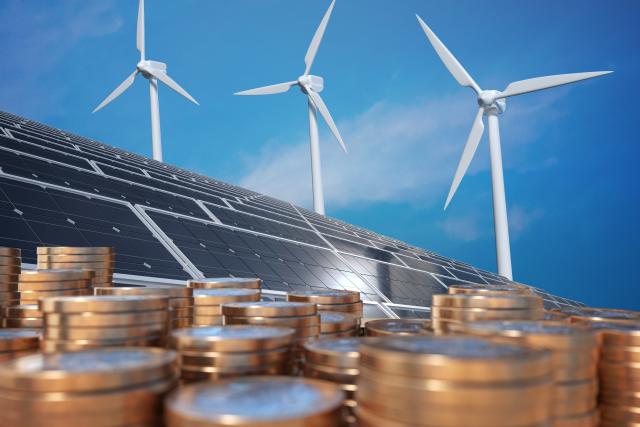
In its recent report, McKinsey expects $1 trillion would need to be reallocated from high-emission to low-carbon assets. (Source: Shutterstock)
Global spending by governments, businesses and individuals on energy and land-use systems will need to rise by a whopping $3.5 trillion per year if the world economies want to achieve net-zero in 2050, according to a recent report.
“While these spending requirements are large and financing has yet to be established, many investments have positive return profiles and should not be seen as merely costs. Technological innovation could reduce capital costs for net-zero technologies faster than expected,” a report by consultancy firm McKinsey & Co. said.
The amount needed to reach net-zero is equivalent to half of global corporate profits, a quarter of world tax revenues and 7% of household spending. Additionally, McKinsey expects $1 trillion would need to be reallocated from high-emission to low-carbon assets.
McKinsey’s report calls for a “fundamental transformation of the world economy” to achieve net-zero. The authors of the report stress that their analysis is not a “projection or a prediction and does not claim to be exhaustive.” Rather it is a “simulation of one hypothetical, orderly path toward 1.5 C using the net-zero 2050 scenario” to provide an estimate of the economic costs and societal adjustments associated with net-zero transition.
The cost of the shift to zero emissions will be “significant,” the report added. While most of this will occur earlier in the transition, McKinsey expects the cost to fall unevenly on lower-income countries, developing nations and fossil fuel producers, creating risks of disruptions to energy supply and price hikes.
Impacts of the transition
High-emission industries, which account for 20% of global GDP, will be most affected by the transition, the report said. Coal production for energy use will nearly end by 2050, while oil and gas production will more than halve.
Although moving away from fossil fuels will have a significant impact on labor with a loss of about 185 million jobs, the green economy will also create 200 million new roles by 2050, according to the report. Demand for jobs in fossil fuel extraction and production could be reduced by about 9 million as a result of the transition, while demand for about eight million direct jobs would be created in renewable power, hydrogen and biofuels by 2050.
The most significant impacts of net-zero transition on everyday lives, the McKinsey report said, will include higher energy bills and job losses in high-emission industries. Consumer spending habits may also be impacted by decarbonization efforts, including the need to replace goods that burn fossil fuels, like transportation vehicles and home heating systems, the report noted.
Act now
World leaders need to start the transition now, the report urged, noting that the economic and social costs will only increase if there is a delayed or abrupt transition, as this could produce a backlash among consumers that risks further slowing measures to get to net-zero.
If the switch from high- to low-emission energy is not carefully managed, shortages and price rises will occur, the report also warned.
According to the Intergovernmental Panel on Climate Change, keeping global temperatures from surpassing the 1.5 C target under the Paris Climate agreement would require the world to nearly halve emissions within the next decade and reach net-zero emissions by 2050.
In November 2021, UN Secretary-General António Guterres said that even if all net-zero commitments and national climate pledges were fulfilled, global warming would not be held to below 1.5 C above pre-industrial levels, increasing the odds of initiating the most catastrophic impacts of climate change.
Reflecting similar sentiment, McKinsey’s report calls for unprecedented cooperation between nations and companies to achieve a green economy, warning that the way things are going means it may already be too late to halt the rise in global temperatures.
Recommended Reading
BP’s Kate Thomson Promoted to CFO, Joins Board
2024-02-05 - Before becoming BP’s interim CFO in September 2023, Kate Thomson served as senior vice president of finance for production and operations.
Magnolia Oil & Gas Hikes Quarterly Cash Dividend by 13%
2024-02-05 - Magnolia’s dividend will rise 13% to $0.13 per share, the company said.
TPG Adds Lebovitz as Head of Infrastructure for Climate Investing Platform
2024-02-07 - TPG Rise Climate was launched in 2021 to make investments across asset classes in climate solutions globally.
HighPeak Energy Authorizes First Share Buyback Since Founding
2024-02-06 - Along with a $75 million share repurchase program, Midland Basin operator HighPeak Energy’s board also increased its quarterly dividend.
Occidental Increases Annual Dividend by 22%
2024-02-11 - Occidental Petroleum Corp.’s newly declared dividend is at an annual rate of $0.88 per share, compared to the previous annual rate of $0.72 per share.





